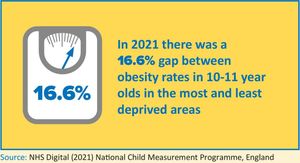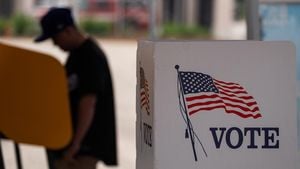The 2024 U.S. presidential election is heating up, and it promises to be one of the most consequential and divisive contests yet. With Vice President Kamala Harris facing off against former President Donald Trump, the stakes are higher than ever. Analysts have identified a handful of key issues shaping the race and the dynamics between the two candidates.
According to various political experts, including J.P. Carroll and Juan Luis Manfredi, the five main issues predicted to influence the 2024 election results are the state of the economy, the climate crisis, social policies, national security, and the mainstreaming of extremist political movements. Understanding how these factors interact can provide insights not only for voters but also for how candidates are shaping their platforms.
The economy is at the forefront of voters' minds as inflation continues to shape everyday life. Economists have noted fluctuations—like the Gross Domestic Product (GDP) rising by 2.8% during the third quarter—which, though positive, fell short of the expected 3.1%. According to Gallup, people's sentiment about the economy has become intertwined with their political preferences. This could lead to dissatisfaction translating directly to votes against the incumbent party, particularly if inflation does not stabilize.
The climate crisis, which affects everyone from farmers to urban dwellers, is also garnering significant attention. Candidates are feeling pressure to present concrete plans for mitigation and adaptation strategies, fundamentally reshaping their political personas. The catastrophic hurricanes and wildfires of recent years have led many voters to prioritize environmental issues as they evaluate their choices.
Social policies are equally pivotal. The repercussions of the Supreme Court's ruling on Roe v. Wade and the subsequent fallout have turned abortion rights fiercely partisan. While Harris has promised to protect these rights, Trump has indicated he would welcome more stringent regulations, potentially alienated not only women but also moderate voters.
National security remains at the upper reaches of political discourse, particularly amid rising tensions globally. The American public is weary of prolonged military engagements and is increasingly interested in diplomatic solutions, especially with regards to issues like immigration and international treaties.
Lastly, one cannot overlook the growing influence of far-right extremists within American politics. With figures like Trump drawing from this nationalist pool, candidates must navigate their clear popularity with portions of the electorate, even as they attempt to appease more moderate constituents.
Taking these issues together, campaign strategies from both sides will clearly pivot on how they address and frame these pivotal points. Harris will likely lean heavily on outreach initiatives directed at women, environmentalists, and urban voters, whereas Trump will amplify conservative-leaning sentiments to energize his base and confront the cultural changes affecting America.
Looking at voting demographics, community leaders are attempting to galvanize efforts among Arab American voters, particularly following significant political engagements from both major candidates. The upcoming election's results could, according to experts, hinge on voter turnout from these often overlooked pockets of the electorate, alongside traditional Republican and Democratic bases.
Another intriguing angle to the election narrative is the financial clout behind those supporting these candidates. Billionaires like Dick Uihlein have been identified as significant players pouring vast resources supporting right-wing agendas and candidates, making several high-profile donations aimed at influencing key elections and legislative measures. These expenditures have raised concerns about corruption and democratic integrity, highlighting the complexity of contemporary political funding.
Trump's campaign, with its familiar backdrop of populism, has attracted controversy but also continues to hold firm support among certain voter factions. The power he wields lies significantly in his ability to rally the base through emotive appeals to nostalgia and strength, which, of course, remains highly effective.
On the opposite end, Harris’s campaign emphasizes compassion and inclusivity, yet she too faces scrutiny for various policy positions and actions, raising questions about whether she can mobilize sufficient support to counter Trump's ardent followers.
This election season, with all its intricacies surrounding key issues and demographic shifts, could prove to be momentous, shaping not just the short-term future of the American political scene but also long-lasting changes to the fabric of society itself. With both candidates ramping up their efforts and voter mobilization activities peaking, it remains to be seen how these dynamics will play out.



